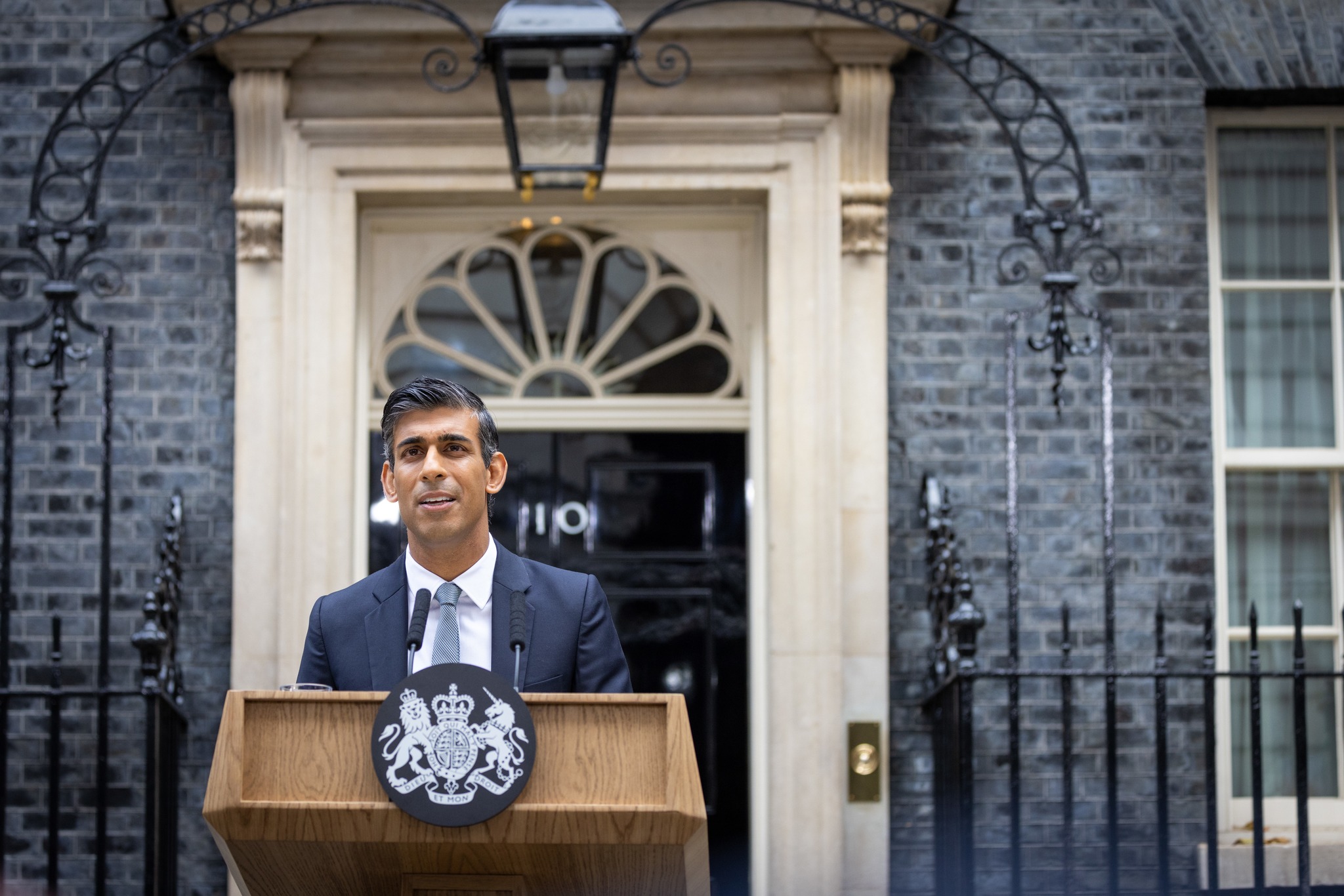
FILE: 25/10/2022. London, United Kingdom. Prime Minister Rishi Sunak arrives in Downing Street. (Photo by Lauren Hurley / No 10 Downing Street via Rishi Sunak/Facebook)
The High Court in Belfast has ruled that key elements of the UK’s Illegal Migration Act are incompatible with the Windsor framework and should not be applied in Northern Ireland. Once again, Northern Ireland appears to be a block on the Brexit ambition to “take back control of our borders”.
This time, though, the implications go beyond the island of Ireland. The judgement reaches across the Irish Sea to the core of the UK’s post-Brexit immigration policy. The court found that parts of the act, which gave the government expansive powers to remove asylum seekers, violate the human rights of those seeking refuge in Northern Ireland.
Unsurprisingly, the government has vowed to appeal. But the ruling has already exposed something about the UK.
This matter is greater than debates around migration, Brexit or the integrity of the UK union. It centres on human rights: something the UK recognised after the second world war to be essential to human dignity, and acknowledged in 1998 to be essential to peace in Northern Ireland. In the wake of brutal conflict, the UK had agreed with its neighbours to apply better and universal standards to protect humanity.
Amid the tortuous Brexit negotiations, the need to uphold human rights was so obvious that it was the point the UK and EU agreed upon most readily. An article on protecting the “rights of individuals” in Northern Ireland was included in the first draft of the UK-EU withdrawal agreement in March 2018.
It remained unchanged through the various iterations of the Protocol on Ireland/Northern Ireland within that agreement that followed: Theresa May’s “backstop” in November 2018, Boris Johnson’s deal in October 2019 and Rishi Sunak’s Windsor framework in February 2023.
The purpose of the protocol (now “Windsor framework”) was not just to avoid a hard border on the island of Ireland but, as article 1 states, to “protect the 1998 [Good Friday/Belfast] Agreement in all its dimensions”.
The principal purpose of article 2 of the Windsor framework is to safeguard that peace agreement. It is striking that, even though this is a joint agreement between the UK and the EU, the article focuses on solely one protagonist. It says: “The United Kingdom shall ensure that no diminution of rights, safeguards or equality of opportunity, as set out in … the 1998 Agreement … results from its withdrawal from the [European] Union”.
As was clearly outlined to a Westminster committee recently, the constitutional incorporation of human rights in Northern Ireland is fundamental to its post-conflict governance. Crucially, the 1998 agreement, which brought 30 years of violence to an end, also established institutions to uphold these protections, including dedicated human rights and equality commissions.
The second part of article 2 of the Windsor framework commits the UK to continuing to facilitate the work of these bodies. It may be seen either as ironic or reassuring that those very same institutions are the ones who have taken the UK government to court for breaching that very same article.
Rolling back on human rights
The legal proceedings taken by the Northern Ireland Human Rights Commission centred on article 2. In essence, the ruling means that elements of UK law diminish rights that are fundamental to the 1998 agreement, including the European Convention on Human Rights. Notably, this is the second time this year the Belfast High Court has found this to be so.
Critics have claimed the judgement will make Northern Ireland a “magnet” for asylum seekers hoping to avoid being sent to Rwanda. But they miss the bigger picture.
Northern Ireland does have a unique place in the UK but this is primarily as a conduit for applying international standards of human rights – even as the government is appearing to unravel them.
Indeed, Northern Ireland’s governance and constitution are uniquely and directly subject to international agreements. This is for good reason.
The protections they offer prevail over domestic law, giving reassurance after a shameful history of state discrimination and rights abuses. Were there to be a change in the constitutional status of Northern Ireland, international standards – and defence – of human rights will remain just as important.
For that, after all, is the point of universal human rights: we do not get to choose whether or not we might need to draw upon their protection.![]()
![]()
Katy Hayward, Professor of Political Sociology, Queen’s University Belfast
This article is republished from The Conversation under a Creative Commons license. Read the original article.





















